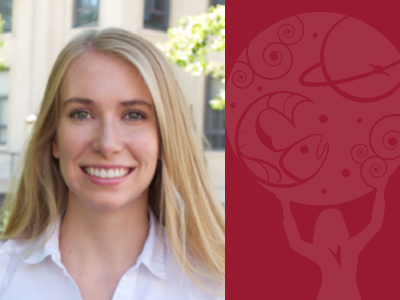#iAmBiomed because I want to help design a future where healthcare is effective and accessible.
Shannon's Biography
Shannon is a recent graduate of the University of Guelph’s Biomedical Engineering Co-op program. During her degree she enjoyed a variety of co-op experiences including working with the Middlesx-London Health Unit’s Vector Borne Disease Team and as an engineering student with Environment and Climate Change Canada. Upon graduating Shannon moved from her home in Toronto to the Northwest Territories to pursue a unique biomedical engineering opportunity.In her spare time Shannon enjoys exploring the outdoors, digital and film photography, painting and continuing her learning by taking courses online in subjects spanning machine learning, robotics and control engineering.
Biomedical/Clinical Engineering Intern, Infrastructure Planning Division, Department of Health and Social Services, Government of the Northwest Territories.In this position I play an active role in the Medical Equipment Evergreening Program, which is the planned replacement of medical equipment across the Northwest Territories. A large part of my role includes researching medical devices and equipment to understand the applications, specifications and features, and infrastructure requirements associated with the equipment. This includes communicating with healthcare professionals in working groups, analyzing equipment, and gathering information from the medical devices industry.
My favourite part of my job is learning something new every day. I am exposed to such a variety of medical devices and equipment which is a unique opportunity. From defibrillators, to portable ultrasound, to surgical lasers for ophthalmology, it is exciting getting to learn so much about so many different devices, both technologically and in terms of their role within the healthcare system and the people and communities they serve.
My degree in engineering has equipped me with tools and fundamentals necessary to tackle challenges. It has allowed me to approach problems with a systems perspective, analyzing situations by considering all identifiable factors. These systematic problem solving skills gave me the confidence to take risks and accept challenges that arise in the workplace.
I think what has surprised me the most about engineering is how the more I learn, the more interests I seem to develop. I entered into the Biomedical Engineering program initially with tissue engineering in mind, but have found I developed such an enjoyment for mechanics and electronics along the way, and now find myself really interested in control theory and machine learning. I never would have anticipated that I would have developed those interests when I was choosing my degree in grade 12.
In my current role I’ve had the opportunity to be a part of many projects that I’ve really enjoyed, but I think the most interesting aspect has been the environment rather than a specific project. Moving to the Northwest Territories coming from Toronto, Ontario, it has been interesting to see the differences in the healthcare systems and how unique the challenges are here compared to more southern regions of Canada.
I always knew that I wanted to pursue a career where I felt like I was making a difference. For that reason I was looking towards healthcare/medicine, because I feel that health has such a strong correlation with overall quality of life. Biomedical engineering allowed me to pursue that goal and tailor it to my love of problem solving.
My vision for women in science and engineering in the next 25 years is that we continue to support and motivate each other, growing a network of women who are confident in their abilities and are aware of their value in the field. I want girls growing up to see themselves represented in the field.
I will help support this goal by continuing to strive to be confident in my own abilities in the field, as well as encouraging those around me to do the same. In addition, I will continue to embrace opportunities such as this that promote women in science and engineering.
My advice for young women pursuing a career in biomedical engineering is to be persistent. It can be difficult to find relevant experience at the start of your career, but if this is the field you’re really passionate about and are determined, people will recognize that. You may have to be flexible starting out but if it’s really what you want to do don’t give up.


